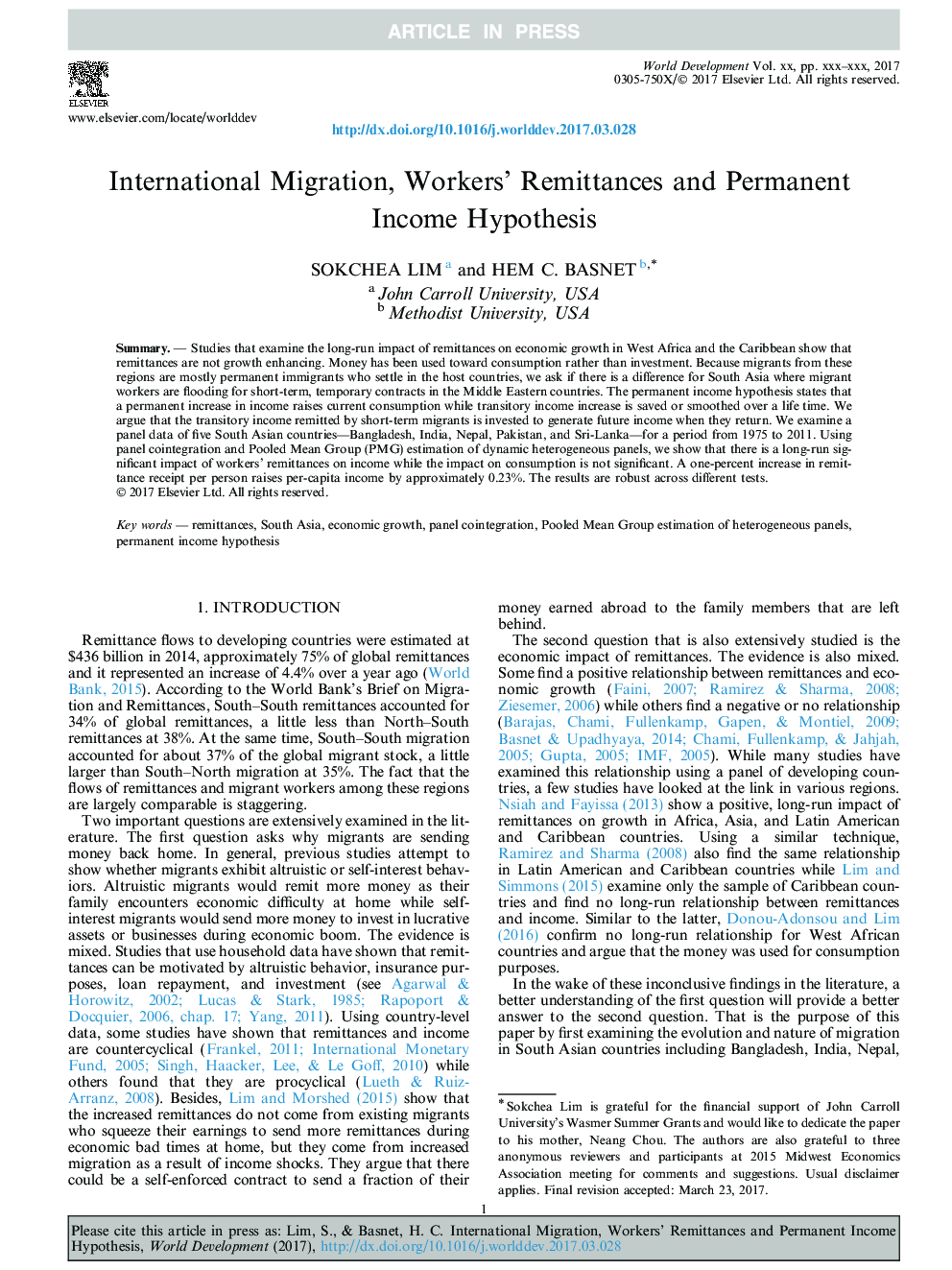| Article ID | Journal | Published Year | Pages | File Type |
|---|---|---|---|---|
| 5105072 | World Development | 2017 | 13 Pages |
Abstract
Studies that examine the long-run impact of remittances on economic growth in West Africa and the Caribbean show that remittances are not growth enhancing. Money has been used toward consumption rather than investment. Because migrants from these regions are mostly permanent immigrants who settle in the host countries, we ask if there is a difference for South Asia where migrant workers are flooding for short-term, temporary contracts in the Middle Eastern countries. The permanent income hypothesis states that a permanent increase in income raises current consumption while transitory income increase is saved or smoothed over a life time. We argue that the transitory income remitted by short-term migrants is invested to generate future income when they return. We examine a panel data of five South Asian countries-Bangladesh, India, Nepal, Pakistan, and Sri-Lanka-for a period from 1975 to 2011. Using panel cointegration and Pooled Mean Group (PMG) estimation of dynamic heterogeneous panels, we show that there is a long-run significant impact of workers' remittances on income while the impact on consumption is not significant. A one-percent increase in remittance receipt per person raises per-capita income by approximately 0.23%. The results are robust across different tests.
Related Topics
Social Sciences and Humanities
Economics, Econometrics and Finance
Economics and Econometrics
Authors
Sokchea Lim, Hem C. Basnet,
